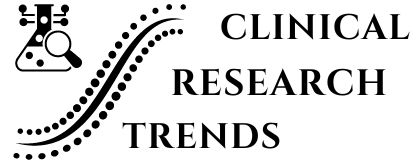Advances in Clinical Trial Design for Rare Diseases
Rare diseases, often referred to as orphan diseases, are conditions that affect a small percentage of the population. In the United States, a disease is classified as rare if it affects fewer than 200,000 individuals at any given time. Similarly, the European Union defines rare diseases as those affecting fewer than 1 in 2,000 people. Despite their individual rarity, there are over 7,000 rare diseases, collectively affecting millions worldwide. These diseases are often severe, chronic, and life-threatening, making the need for effective treatments critical.
Clinical research plays a vital role in understanding and developing treatments for rare diseases. However, conducting clinical trials in this area presents unique challenges that require innovative solutions. This blog explores the advances in clinical trial design for rare diseases, addressing the current challenges, innovative trial designs, technological advancements, patient-centric approaches, and the regulatory and ethical considerations involved. The purpose is to provide a comprehensive overview of the evolving landscape of rare disease trials and highlight the importance of continued innovation and collaboration.
Current Challenges in Rare Disease Trials
Small Patient Populations
One of the most significant challenges in rare disease trials is the small patient population available for study. With fewer patients, it becomes challenging to recruit enough participants to generate statistically significant data. This limitation often leads to extended recruitment periods and, in some cases, the inability to complete trials. Moreover, the geographical dispersion of patients further complicates recruitment, as they may be spread across different regions or countries.
Limited Funding and Resources
Funding for rare disease research is often limited due to the smaller market size and lower potential for profitability. Pharmaceutical companies may hesitate to invest in the development of treatments for rare diseases, considering the high costs of research and development coupled with the uncertain return on investment. Additionally, the lack of existing knowledge and data on these diseases can result in longer and more expensive clinical trials, further straining limited resources.
Ethical and Regulatory Issues
The ethical and regulatory landscape for rare disease trials is complex. Researchers must navigate various regulations, which can vary significantly between countries, to ensure patient safety and data integrity. Ethical concerns also arise when considering the placebo effect, as withholding potential treatment from patients with life-threatening conditions is a sensitive issue. Furthermore, the need for informed consent and transparency in communication with patients and their families is paramount, given the often desperate need for effective treatments.
Innovative Trial Designs
To overcome the challenges associated with rare disease trials, researchers have developed innovative trial designs that maximize the use of limited patient populations and resources while ensuring rigorous scientific standards.
Adaptive Trial Designs
Adaptive trial designs allow for modifications to the trial protocol based on interim data analysis. This flexibility enables researchers to make adjustments, such as changing the sample size, treatment arms, or endpoints, without compromising the integrity of the trial. Adaptive designs are particularly beneficial in rare disease trials, where patient numbers are limited, and the ability to adapt to emerging data can improve the efficiency and ethical considerations of the study.
Basket and Umbrella Trials
Basket and umbrella trials represent two novel approaches that allow for the simultaneous investigation of multiple treatments or diseases within a single trial framework. In a basket trial, patients with different diseases that share a common molecular marker receive the same treatment. This design allows for the exploration of a treatment's efficacy across various conditions, potentially accelerating the approval of therapies for multiple indications. Umbrella trials, on the other hand, focus on a single disease but test multiple treatments based on specific genetic or molecular characteristics of the patients. Both designs offer the advantage of pooling resources and patient populations, making them highly suitable for rare disease research.
N-of-1 Trials
N-of-1 trials are individualized clinical trials in which a single patient receives multiple interventions in a randomized order. This design allows for the direct comparison of different treatments within the same patient, providing personalized insights into the most effective therapy. While N-of-1 trials are not suitable for all conditions, they are particularly valuable in rare diseases, where individual variability may significantly impact treatment outcomes. These trials can also inform larger studies and contribute to the growing body of knowledge on rare diseases.
Technological Advancements
Technological advancements are transforming the landscape of rare disease research, offering new tools and methodologies to improve the design and execution of clinical trials.
Use of Genomics and Precision Medicine
Genomics and precision medicine are revolutionizing the understanding and treatment of rare diseases. By analyzing the genetic makeup of patients, researchers can identify specific mutations and pathways involved in disease progression. This information enables the development of targeted therapies that are tailored to the individual patient, increasing the likelihood of treatment success. Additionally, genomics can help identify biomarkers for disease monitoring and prognosis, further enhancing the precision of clinical trials.
Artificial Intelligence and Machine Learning
Artificial intelligence (AI) and machine learning (ML) are increasingly being used to analyze large datasets and identify patterns that may not be apparent through traditional methods. In rare disease research, AI and ML can aid in patient identification, trial recruitment, and the development of predictive models for treatment response. These technologies can also streamline data analysis, reducing the time and cost associated with clinical trials. Furthermore, AI and ML algorithms can assist in the discovery of new drug targets and the repurposing of existing medications for rare diseases.
Digital Health Technologies
Digital health technologies, including wearable devices, mobile health apps, and telemedicine, are enhancing the collection of real-world data and patient engagement in clinical trials. Wearable devices can monitor vital signs, physical activity, and other health metrics, providing continuous data that can inform treatment decisions. Mobile health apps facilitate communication between patients and researchers, enabling the remote monitoring of symptoms and adverse events. Telemedicine offers a means to reach geographically dispersed patients, reducing the burden of travel and improving access to care. These technologies are particularly valuable in rare disease trials, where patient populations are often scattered and traditional data collection methods may be impractical.
Patient-Centric Approaches
Involving patients and their families in the research process is crucial for the success of rare disease trials. Patient-centric approaches prioritize the needs and experiences of patients, ensuring that their voices are heard and their contributions are valued.
Involving Patients and Advocacy Groups
Patient advocacy groups play a vital role in rare disease research, providing support, education, and advocacy for patients and their families. Involving these groups in the design and conduct of clinical trials can enhance patient recruitment and retention, as they often have a deep understanding of the patient community and can help bridge the gap between researchers and participants. Additionally, patients and advocacy groups can provide valuable insights into the disease experience, informing the selection of relevant endpoints and outcome measures.
Enhancing Patient Experience and Engagement
Enhancing the patient experience is critical for the success of clinical trials. This involves minimizing the burden of participation, providing clear and transparent communication, and ensuring that patients feel valued and respected. Strategies to enhance patient engagement include simplifying trial protocols, offering flexible scheduling, and providing access to trial results. Additionally, involving patients in the decision-making process, such as through patient advisory boards, can help ensure that trials are designed with the patient in mind.
Personalized Treatment Approaches
Personalized treatment approaches aim to tailor therapies to the individual patient based on their unique genetic, molecular, and clinical characteristics. In rare diseases, where there is often significant variability in disease presentation and response to treatment, personalized approaches can improve outcomes and reduce the risk of adverse events. Personalized medicine also offers the potential for identifying subgroups of patients who may benefit most from a particular treatment, allowing for more targeted and efficient use of resources.
Regulatory and Ethical Considerations
Navigating the complex regulatory and ethical landscape is a critical aspect of rare disease trials. Researchers must ensure that their studies comply with relevant regulations and ethical guidelines to protect patient safety and data integrity.
Navigating Complex Regulatory Landscapes
Regulatory requirements for rare disease trials can vary significantly between countries, adding complexity to the research process. Researchers must be familiar with the specific regulations in each region where the trial is conducted, including those related to patient consent, data protection, and reporting. Additionally, the approval process for new therapies can be lengthy and challenging, particularly for rare diseases where there may be limited precedent. Engaging with regulatory agencies early in the development process and seeking opportunities for accelerated approval pathways, such as orphan drug designation or fast-track status, can help streamline the regulatory process.
Ensuring Ethical Conduct and Patient Safety
Ethical considerations are paramount in rare disease trials, where patients often face significant unmet medical needs and limited treatment options. Ensuring informed consent, maintaining patient confidentiality, and minimizing risks are essential components of ethical research conduct. Additionally, researchers must consider the ethical implications of placebo-controlled trials, particularly when effective treatments are unavailable. In such cases, alternative trial designs, such as crossover or open-label studies, may be more appropriate. Ethical oversight by institutional review boards (IRBs) or ethics committees is also crucial to ensure that the rights and welfare of patients are protected.
Impact of Regulatory Changes
Regulatory changes can have a significant impact on the conduct of rare disease trials. Recent developments, such as the introduction of adaptive licensing and conditional approval pathways, aim to accelerate the availability of new therapies for patients with unmet medical needs. Additionally, the increasing emphasis on patient-centered outcomes and real-world evidence in regulatory decision-making reflects a shift towards more flexible and adaptive approaches. Researchers and stakeholders must stay informed of regulatory changes and engage with regulatory agencies to navigate these evolving landscapes effectively.
Case Studies and Future Outlook
Examining case studies of successful rare disease trial provides valuable insights into best practices and the potential for future advancements.
Examples of Successful Rare Disease Trials
One notable example is the development of enzyme replacement therapy for Fabry disease, a rare lysosomal storage disorder. Through collaborative efforts between researchers, patient advocacy groups, and regulatory agencies, clinical trials successfully demonstrated the efficacy of the treatment, leading to its approval and significant improvements in patient outcomes. Another example is the use of gene therapy in spinal muscular atrophy (SMA), where innovative trial designs and the involvement of patient groups facilitated the rapid development and approval of life-changing therapies.
Lessons Learned and Best Practices
Key lessons from successful rare disease trials include the importance of collaboration, patient involvement, and innovative trial designs. Collaborative efforts between researchers, industry, patient advocacy groups, and regulatory agencies can accelerate the development and approval of new therapies. Involving patients in the research process ensures that trials are designed with their needs and experiences in mind, improving recruitment and retention. Innovative trial designs, such as adaptive and basket trials, maximize the use of limited patient populations and resources, increasing the efficiency of the research process.
Future Trends and Predictions
Looking ahead, the future of rare disease trials is likely to be shaped by continued advancements in genomics, precision medicine, and digital health technologies. The increasing availability of genetic data and the growing understanding of disease mechanisms will drive the development of more targeted and personalized therapies. AI and machine learning will continue to play a critical role in data analysis and the discovery of new drug targets. Additionally, the adoption of decentralized and hybrid trial models, enabled by digital health technologies, will improve access to trials for patients in remote or underserved areas. As regulatory frameworks evolve to accommodate these advancements, there will be greater opportunities for innovative approaches to rare disease research.
Notable Labs is at the forefront of advancing clinical trial designs for rare diseases, also known as orphan diseases, which affect a small percentage of the population. In the United States, a disease is classified as rare if it affects fewer than 200,000 individuals, while in the European Union, the threshold is fewer than 1 in 2,000 people. Despite their rarity, over 7,000 rare diseases collectively impact millions globally, often being severe, chronic, and life-threatening.
The critical need for effective treatments drives clinical research in this field. However, the challenges in conducting trials, such as small patient populations, limited funding, and complex regulatory and ethical landscapes, demand innovative solutions. Notable Labs explores these challenges and delves into cutting-edge trial designs, including adaptive, basket, and N-of-1 trials, which maximize the use of limited resources while maintaining rigorous scientific standards.
Technological advancements, such as genomics, precision medicine, artificial intelligence, and digital health technologies, are transforming the landscape of rare disease research. These tools enable the development of targeted therapies, efficient data analysis, and improved patient engagement. Patient-centric approaches, including involving patient advocacy groups and enhancing patient experience, are crucial for the success of these trials.
Notable Labs also highlights the importance of navigating complex regulatory landscapes and ensuring ethical conduct and patient safety. The evolving regulatory environment, with new pathways for accelerated approvals, offers opportunities for innovative research approaches.
Conclusion
The landscape of rare disease trials is evolving rapidly, driven by advances in trial design, technology, and patient engagement. Despite the challenges posed by small patient populations, limited funding, and complex regulatory requirements, the field has made significant strides in recent years. Innovative trial designs, such as adaptive, basket, and N-of-1 trials, are providing new pathways for developing and testing therapies. Technological advancements in genomics, AI, and digital health are transforming the research process, offering new tools for data collection and analysis. Patient-centric approaches are ensuring that the needs and experiences of patients are at the forefront of research efforts.
As we look to the future, continued innovation and collaboration will be crucial in advancing rare disease research. Researchers, industry stakeholders, patient advocacy groups, and regulatory agencies must work together to overcome the unique challenges of rare disease trials and bring new therapies to patients in need. By embracing new methodologies and technologies, we can accelerate the development of effective treatments and improve the lives of those living with rare diseases. The call to action is clear: we must continue to push the boundaries of what is possible in rare disease research and strive for a future where no patient is left behind.










